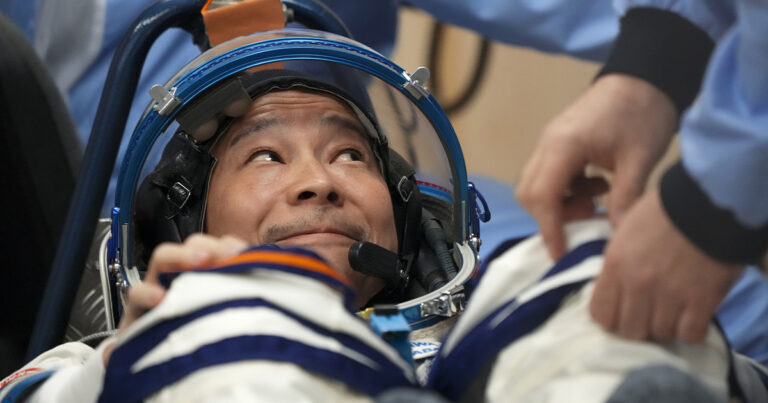“We apologize to those who were looking forward to this project.”
Diva Down
Billionaire fashion entrepreneur Yusaku Maezawa has cancelled a much-publicised space tourism flight, citing preparation issues with SpaceX’s Starship rocket.
First announced in 2018, the trip, dubbed “DearMoon,” would have taken Maezawa and 10 other space tourists (including DJ Steve Aoki) around the moon and returned to Earth. If the trip had gone ahead, it would have been the first privately funded trip around the moon in history.
“We expect to go further from Earth than humanity has ever gone before,” SpaceX CEO Elon Musk said of the mission in a 2021 promotional video.
But that didn’t happen. Over the weekend, the official dearMoon account on X (formerly Twitter) released a statement announcing the “disappointing” decision to cancel the trip, while on his personal account on the same platform, Maezawa placed all the blame on SpaceX and Musk.
“I signed the contract in 2018 with the assumption that DiaMoon would be launched by the end of 2023,” the Japanese billionaire wrote. “It can’t be helped, as this is a project under development, but it’s still uncertain when Starship will be launched.”
“We apologize for keeping our staff waiting for so long and have made the difficult decision to cancel at this time,” he continued in the thread, “and apologize to everyone who was looking forward to seeing this project come to life.”
Of course.
This isn’t the first time Musk’s plans have gone awry: Over the years, SpaceX’s attempts to launch Starship have ended in a series of delays, pushbacks, bridge collisions, and explosions. Other SpaceX projects, including the first crewed Dragon mission, are known to have experienced similar delays.
This isn’t just a SpaceX problem: Tesla, another Musk venture, is notorious for unfulfilled promises and major delays in timelines. A particularly notable example is Musk’s recently restated (albeit still very vague) promise that the long-awaited Tesla Robotaxi would finally be unveiled in August of this year. Previously, in 2019, Musk claimed that there would be “one million” robotaxis on the roads by “2020”. Right!
With all this in mind, as Payload points out, other ventures counting on Starship’s success may see dearMoon’s cancellation as a sign of a canary in the coal mine.
Perhaps the most immediate challenge is that NASA’s upcoming Artemis III mission — which will return humans to the moon’s surface for the first time in more than 50 years — depends on Starship being operational by 2026. That’s a tall order for a rocket that has yet to launch without exploding.
Either way, it’s unclear if there was a refund policy in place, so our condolences go out to Maezawa and his fellow space enthusiasts.
More on billionaires and space: NASA experts worry billionaire space tourists could accidentally destroy the Hubble Space Telescope while repairing it

